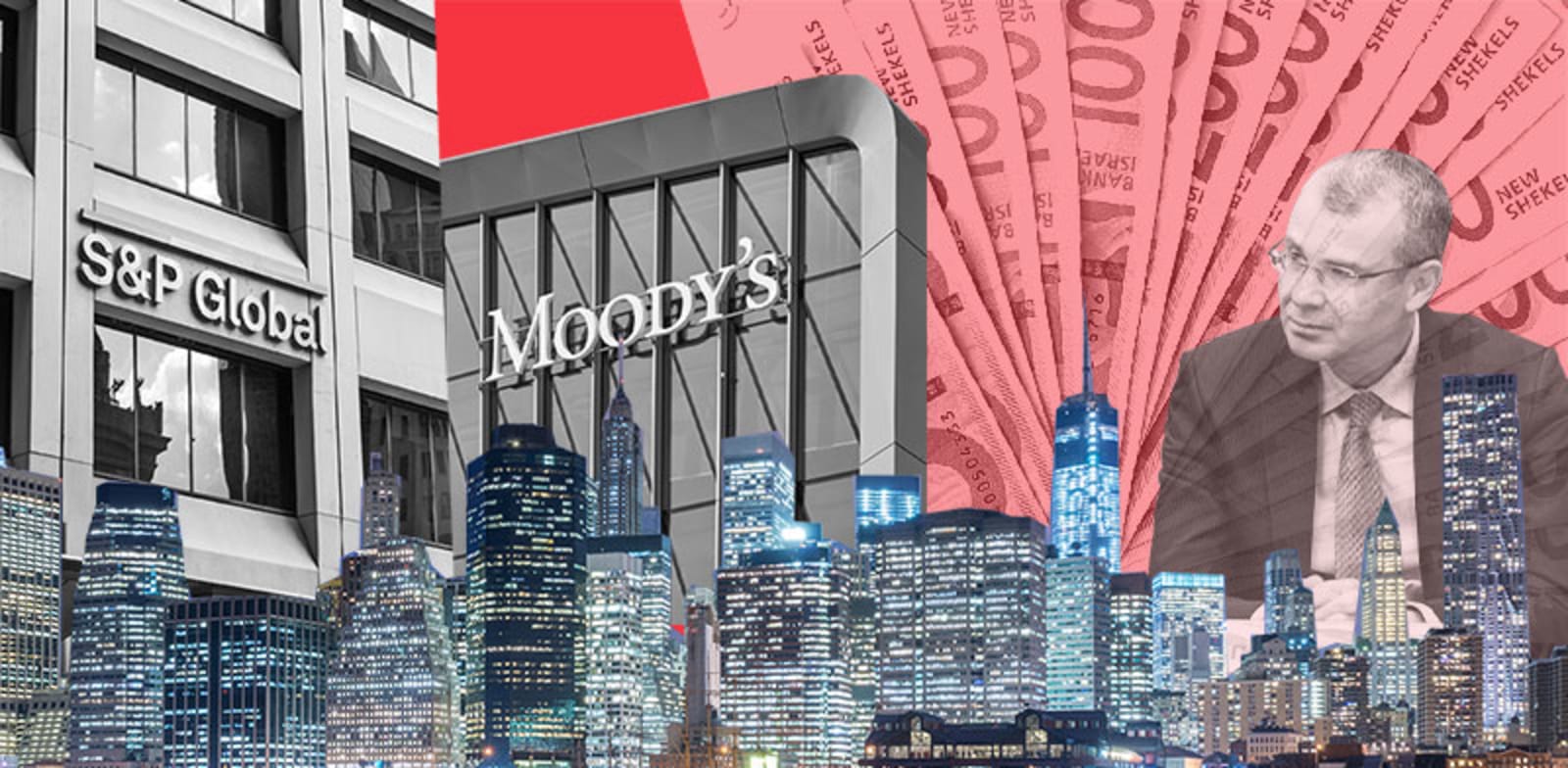[ad_1]
At the beginning of this week, after the meeting between the prime minister and economic leaders, the publication of the letter from economists opposed to the planned changes in the judicial system, and the announcement by the CEO of Papaya Global that she would move all the company’s cash out of Israel because of those plans, investors panicked, causing sharp movements on the Tel Aviv Stock Exchange.
A well-known general rule on the capital market is that as soon as an economic crisis breaks, the first to sell are private investors, and they often thus present an opportunity to more sophisticated investors or those with greater stamina, such as the financial institutions. The falls on the Tel Aviv Stock Exchange on Thursday certainly appear to conform to this rule.
The figures for trading in equities and bonds on the exchange show that, on Sunday, when prices fell, mutual funds sold in higher volumes than they bought. The mutual funds, because of their high liquidity, represent the best indication of how the public is thinking.
This is what happened when the Covid-19 pandemic started. NIS 10 billion were redeemed from mutual funds in a single day. Of course, the falls on the stock market at the beginning of this week were nothing like the alarm with which the market was seized then, but the data show that the mutual funds sold equities and bonds to the tune of NIS 628 million and bought to the tune of NIS 523 million. The gap represents redemptions amounting to NIS 105 million.
The big sell-off was of shares in the two big banks: Leumi (NIS 14.3 million) and Hapoalim (NIS 7.8 million), figures that are in line with the fall in the stock market’s Banks Index on Sunday. Several mutual funds also bought shares in Leumi and Hapoalim, but on a much smaller scale: NIS 3.8 million and NIS 1.5 million respectively.
On the other side, the institutions jumped on the shares that came onto the market. The pension and provident funds bought shares to the tune of NIS 348 million and sold to the tune of NIS 321 million, giving a positive difference of NIS 28 million.
Don’t try to time the market, any investment expert will tell you. Investors learned that lesson once again in the days following the sharp falls on Sunday. On Monday, the gap between the mutual funds, that is, private investors, and the institutions actually widened, as the latter swept up stocks that had fallen.
RELATED ARTICLES

How far might judicial reform affect Israel’s credit rating?
Netanyahu tells businesspeople he’s ready for dialogue
When investors tried to get back into the market following the rises recorded on Monday, prices were higher. Despite that, the ten largest purchase transactions by the mutual funds that day totaled NIS 61.5 million, while the ten largest sale transactions totaled NIS 38 million. By contrast, the totals of the ten largest purchase and ten largest sale transactions by the institutions were similar, such that at least part of the shares sold gave them a profit as prices corrected upwards.
What about the foreign investors, who, it was claimed at the end of last week, were withdrawing their money from the Israeli market? The Tel Aviv Stock Exchange examined the figures.
“When the headlines spoke of money being withdrawn from Tel Aviv and transferred overseas, we took a look at what was happening with us,” says Yaniv Pagot, head of trading, indexes and derivatives at the Tel Aviv Stock Exchange. “Of course, everything could yet change, but in January as a whole and even in the last days of the month we did not see an exit of foreign investors’ money. The main activity was by local institutions and investment managers.
“Anyone reading the headlines on those days might have formed the impression that there was an exit of foreign money, and that’s not what we saw. We didn’t see big movements on the screens. We have a summary of activity broken down by type of customer: foreign investors, institutions, mutual funds, and the general public, and when we checked, we found that the foreigners were actually on the buyer side in both bonds and equities.”
Panic at imaginary situation
Prof. Haim Kedar-Levy, an expert on finance and financial crises at Ben Gurion University of the Negev, calls the kind of dynamic described above “the theory of rational expectations”. On both the capital market and the real estate market, he says, “Investors believe or estimate that a future scenario will happen, and so they revise their expectations and act accordingly. They draw support from other people’s expectations. As a result, the event seems more tangible.
“Besides that, the public often reacts out of fear or panic, a layer that can add to the theory of rational expectations, and reinforce the reaction of the markets to a crisis.”
A situation in which the banks talk about withdrawals of deposits is very dangerous for them, because it is liable to lead to a run on the banks. “When bankers come out with statements like these, they are cutting the branch they sit on,” says Kedar-Levy.
If so, how do you understand the statements about withdrawals of deposits in the past few days?
“Perhaps they didn’t intend these statements to be published, but they were leaked to the media and on social media. It doesn’t seem to me likely that they would knowingly score such an own goal. Another possibility is that the bankers didn’t think that people would respond in any significant way to these statements.”
Dr. Liraz Margalit, a social psychologist at Reichman University who specializes in behavioral design and decision making, agrees that psychology also plays a part in situations of this kind. “Even if there isn’t really a crisis, excessive media attention and messages can generate panic that provokes it,” she told “Globes”. “Emotions and the need to restore a sense of being in control cause us to act, even wrongly.”
“The market tends to react more strongly to negative news than to positive news,” says Dr. Moran Ofir, an expert on financial decision making, also at Reichman University. “Studies have also found that a future event has a greater effect on the capital market than an event that has already happened, because the latter is generally already priced in. In the Covid-19 crisis, for example, we saw a strong reaction on the Israeli stock market even before the first case of the disease came to light in Israel. The market subsequently corrected.
“When there’s a sell-off on the market, it becomes a wave that reinforces the falls in value, and when people start going back into the market, suddenly there’s a wave of buying,” Ofir says. “In fact, many investors follow other well-known, sophisticated investors, influencers, and analysts’ recommendations, and so act in unison as a herd, which reinforces the reaction and turns it into an over-reaction.”
She says that an over-reaction by the market can also arise from the psychological effects of uncertainty and risk aversion. “Investors fear uncertainty. It introduces noise into their pricing models and makes them less reliable, preventing investors from realizing the full profit potential,” she explains. “Historically, big falls in value on the capital markets occur around events that raise the level of uncertainty, such as wars, health crises, and major natural disasters. The tsunami in South East Asia in 2004, for example, or social and economic changes, such as Brexit in Britain.”
To what extent is the volatility in the stock indices in the past week attributable to events in connection with the judicial reform?
Dr. Ofir: “To give a scientific answer would require advanced statistical analysis. But there are several strong indications that it was indeed a reaction to the reform. One indication is the lack of correlation with global markets. All over the world, stock markets rose strongly, and we had declines, despite similar macro conditions.
“Another indication is the specific reaction of bank stocks. They fell immediately after Netanyahu’s talk with economic leaders, among them the CEOs of two of Israel’s biggest banks, Hapoalim and Discount. There was an assessment that the banking sector would sustain a quicker and perhaps harder blow, and so bank stocks reacted more strongly.
“The banking sector is more vulnerable to the reform because it’s very easy to move money from one bank to another, unlike in non-financial businesses, where the effect permeates more slowly.”
Published by Globes, Israel business news – en.globes.co.il – on February 2, 2023.
© Copyright of Globes Publisher Itonut (1983) Ltd., 2023.
[ad_2]













